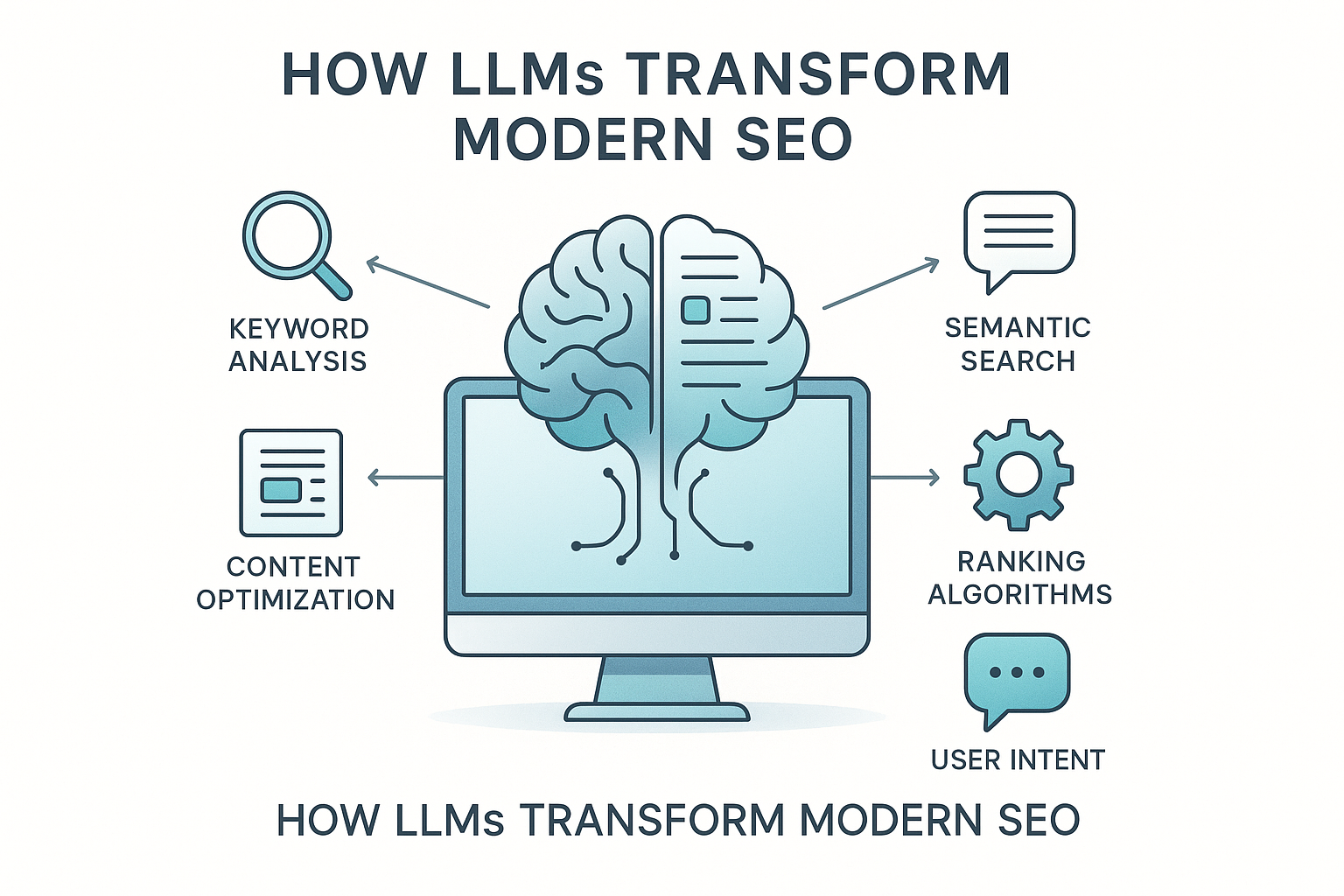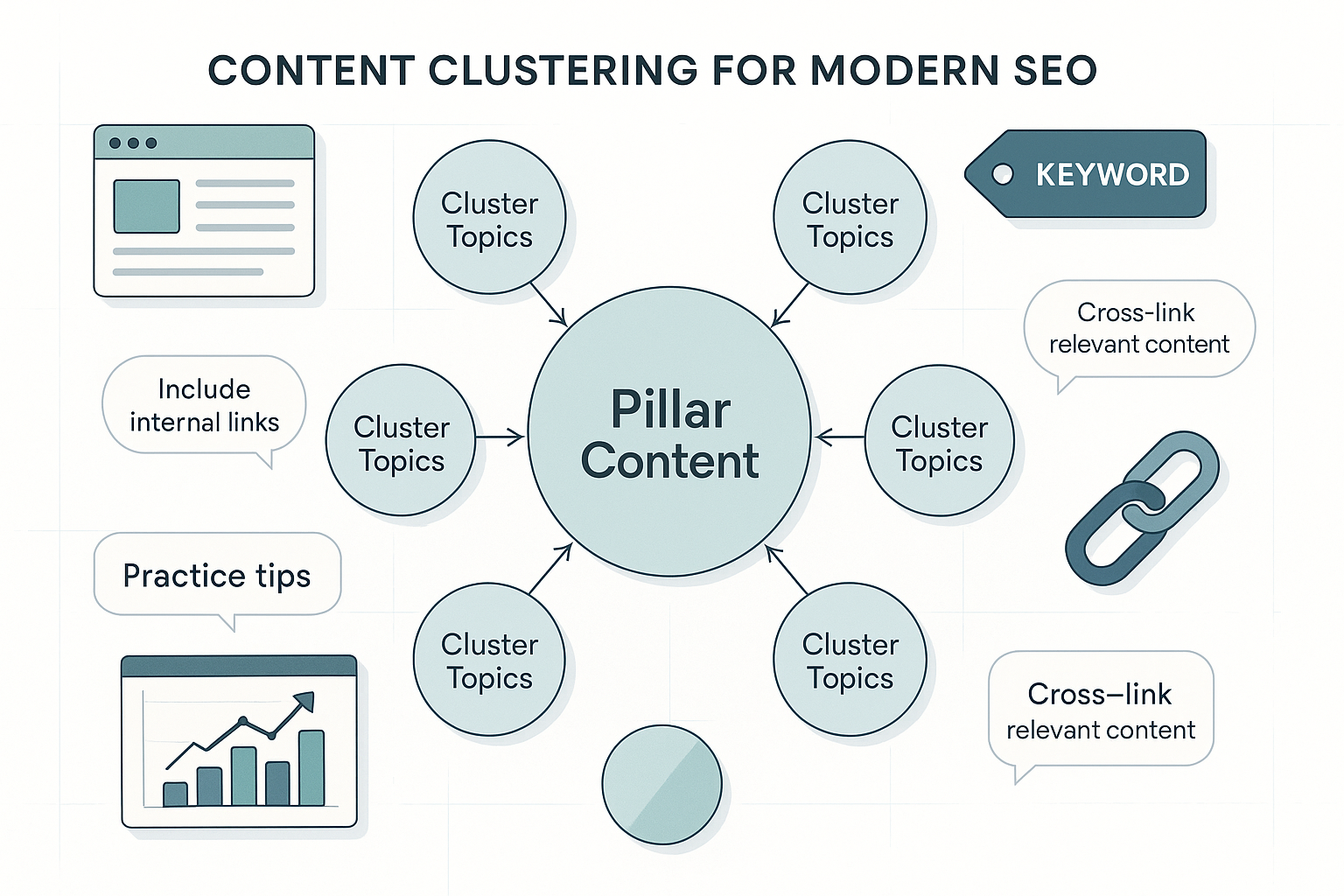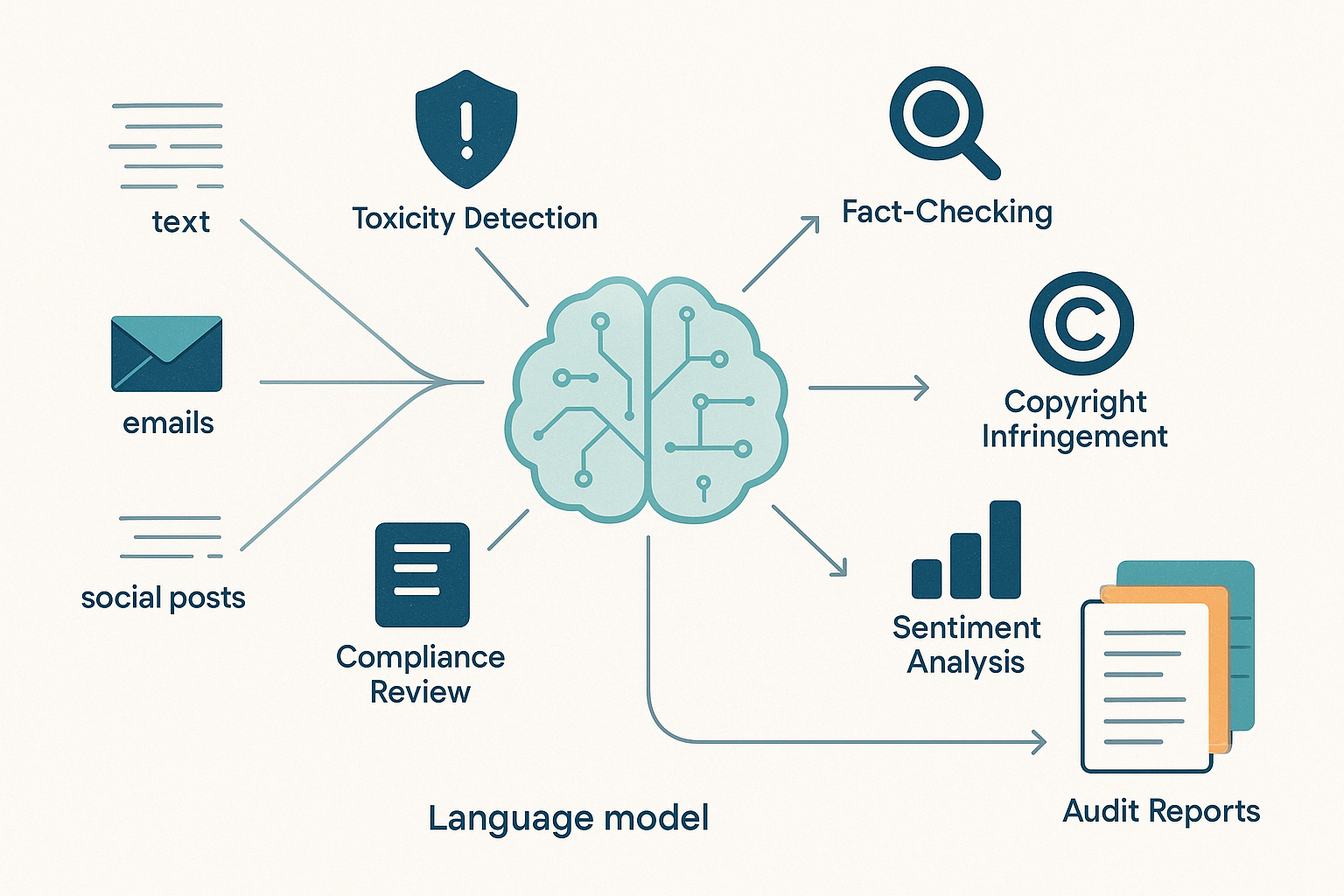Advanced on page SEO made simple.
Powered by POP Rank Engine™
Includes AI Writer
7-day refund guarantee
The digital landscape is constantly evolving, and businesses must adapt to stay ahead. One of the most significant advancements in recent years is the integration of Artificial Intelligence (AI) into SEO optimization. AI is revolutionizing how we approach SEO, offering new tools and techniques that can significantly enhance website performance and visibility. In this article, we'll explore how AI for SEO optimization is transforming and unlocking new potential for businesses.
Which is the best LLM for SEO content?
Get the full rankings & analysis from our study of the 10 best LLM for SEO Content Writing in 2026 FREE!

- Get the complete Gsheet report from our study
- Includes ChatGPT, Gemini, DeepSeek, Claude, Perplexity, Llama & more
- Includes ratings for all on-page SEO factors
- See how the LLM you use stacks up
Understanding AI in SEO
Artificial Intelligence refers to the simulation of human intelligence in machines designed to think and learn like humans. In the context of SEO, AI can analyze vast amounts of data, identify patterns, and make decisions to improve website ranking on search engines. AI-powered tools can automate many aspects of SEO, making the process more efficient and effective.
AI-Driven Keyword Research
Keyword research is a fundamental aspect of SEO. Traditionally, this process involved manual analysis of search volumes, competition, and relevance. AI has streamlined keyword research by using machine learning algorithms to analyze data from various sources and predict keyword performance. AI tools like Google's RankBrain and IBM's Watson can provide insights into user intent and identify long-tail keywords that might have been overlooked.
Which is the best LLM for SEO content?
Get the full rankings & analysis from our study of the 10 best LLM for SEO Content Writing in 2026 FREE!

- Get the complete Gsheet report from our study
- Includes ChatGPT, Gemini, DeepSeek, Claude, Perplexity, Llama & more
- Includes ratings for all on-page SEO factors
- See how the LLM you use stacks up
Content Creation and Optimization
Creating high-quality, relevant content is crucial for SEO success. AI can assist in content creation by generating ideas, drafting articles, and even writing full pieces of content. Tools like OpenAI's GPT-3 can produce human-like text based on specific prompts, saving time for content creators. Moreover, AI can optimize existing content by analyzing its structure, readability, and keyword density, ensuring it meets SEO best practices.
On-Page SEO Enhancements
On-page SEO involves optimizing individual web pages to rank higher and earn more relevant traffic. AI can analyze on-page elements such as meta tags, headers, and images to ensure they are optimized for search engines. AI tools can also provide recommendations for improving page load speed, mobile-friendliness, and overall user experience, which are critical factors in SEO.
Predictive Analysis and Trend Identification
AI excels at analyzing data and identifying trends. For SEO, this means AI can predict changes in search engine algorithms and adapt strategies accordingly. AI-powered tools can monitor market trends, competitor activities, and user behavior, providing valuable insights that can be used to adjust SEO tactics in real time. This predictive analysis can give businesses a competitive edge by allowing them to stay ahead of SEO trends.
Enhanced User Experience
Search engines prioritize websites that offer a superior user experience. AI can help enhance user experience by personalizing content, improving site navigation, and providing real-time customer support through chatbots. By analyzing user behavior and preferences, AI can tailor content to individual users, increasing engagement and satisfaction. A better user experience translates to longer visit durations and lower bounce rates, positively impacting SEO.
Link Building Automation
Link building is a vital aspect of SEO, but it can be time-consuming and challenging. AI can automate the process of identifying potential backlink opportunities, reaching out to website owners, and tracking the performance of acquired links. AI tools can analyze the authority and relevance of linking websites, ensuring high-quality backlinks that boost SEO performance.
Voice Search Optimization
With the rise of voice search, optimizing for voice queries has become essential. AI can help optimize content for voice search by analyzing natural language patterns and understanding how people speak when using voice assistants like Siri or Alexa. AI tools can suggest changes to content that make it more likely to appear in voice search results, ensuring businesses don't miss out on this growing trend.
Monitoring and Analytics
Continuous monitoring and analysis are crucial for successful SEO campaigns. AI-powered analytics tools can provide real-time data on website performance, keyword rankings, and user behavior. These tools can generate detailed reports and identify areas for improvement, allowing businesses to make data-driven decisions. AI's ability to process and interpret large datasets quickly means faster and more accurate insights.
Future Prospects of AI in SEO
The integration of AI in SEO is still in its early stages, and the potential for future advancements is immense. As AI technology continues to evolve, we can expect even more sophisticated tools and techniques that will further revolutionize SEO. From advanced natural language processing to predictive analytics, AI will continue to unlock new potentials for SEO optimization, helping businesses achieve better visibility and higher rankings.
Conclusion
AI is transforming SEO optimization by providing new tools and techniques that enhance efficiency and effectiveness. From keyword research and content creation to predictive analysis and user experience, AI is unlocking new potentials for businesses looking to improve their online presence. By embracing AI-driven SEO strategies, businesses can stay ahead of the competition and achieve long-term success in the digital landscape.







